University Book Study Assignment: Module 4 Discussion Answers
VerifiedAdded on 2022/08/11
|7
|1489
|14
Homework Assignment
AI Summary
This assignment presents a student's response to a book study, focusing on key educational concepts. The student explores the relationship between questions and the creative process, emphasizing how questions deepen learning and promote imagination. The assignment also addresses the necessity of failure and feedback, highlighting their roles in student improvement and confidence-building. Furthermore, it examines the importance of classroom positioning and reframing for student success, discussing how these strategies enhance engagement and problem-solving. The student provides detailed answers to discussion questions, referencing relevant literature to support their arguments. The assignment covers a range of topics, including creativity, failure, feedback, and classroom management strategies, providing a comprehensive overview of the subject matter.
1 out of 7
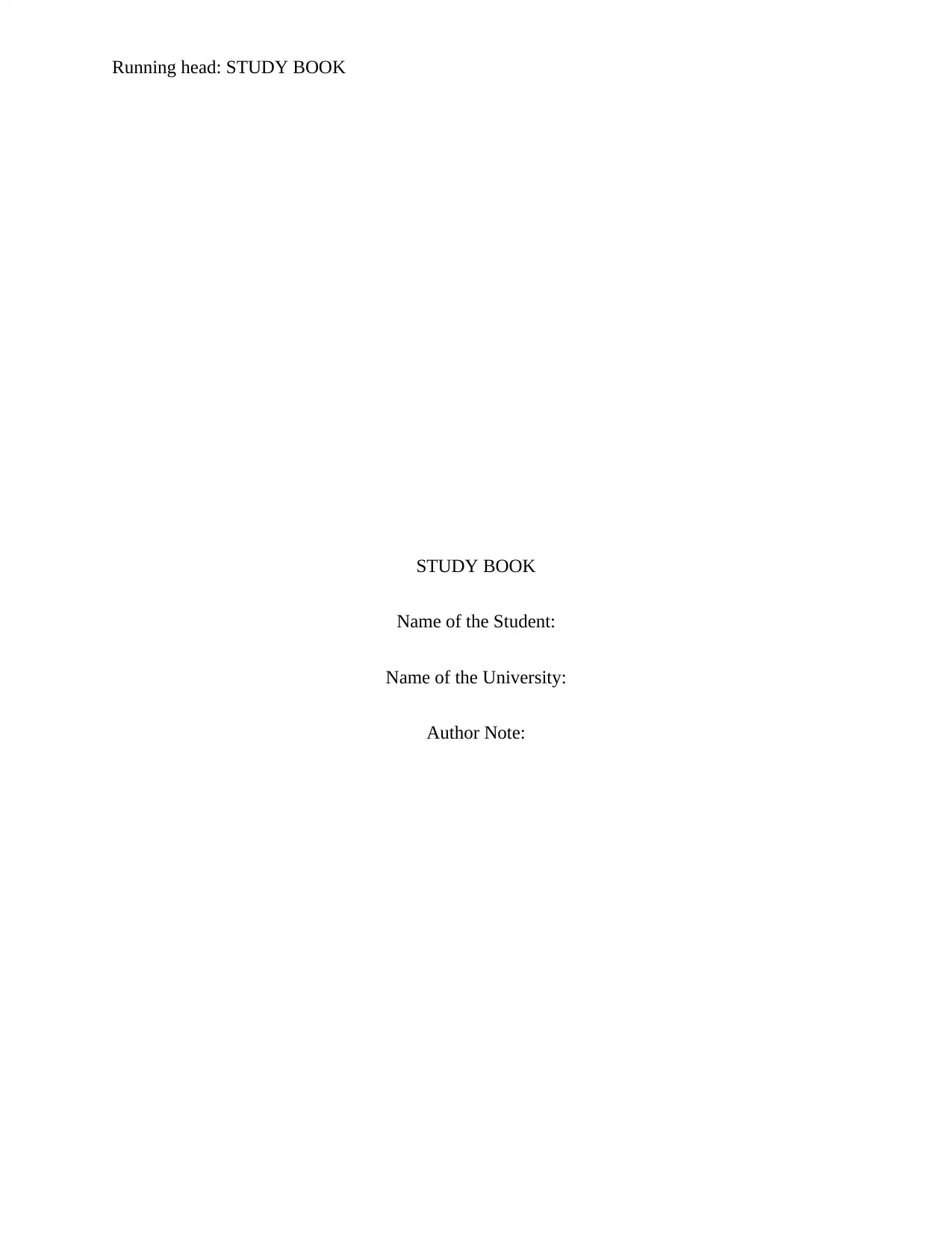
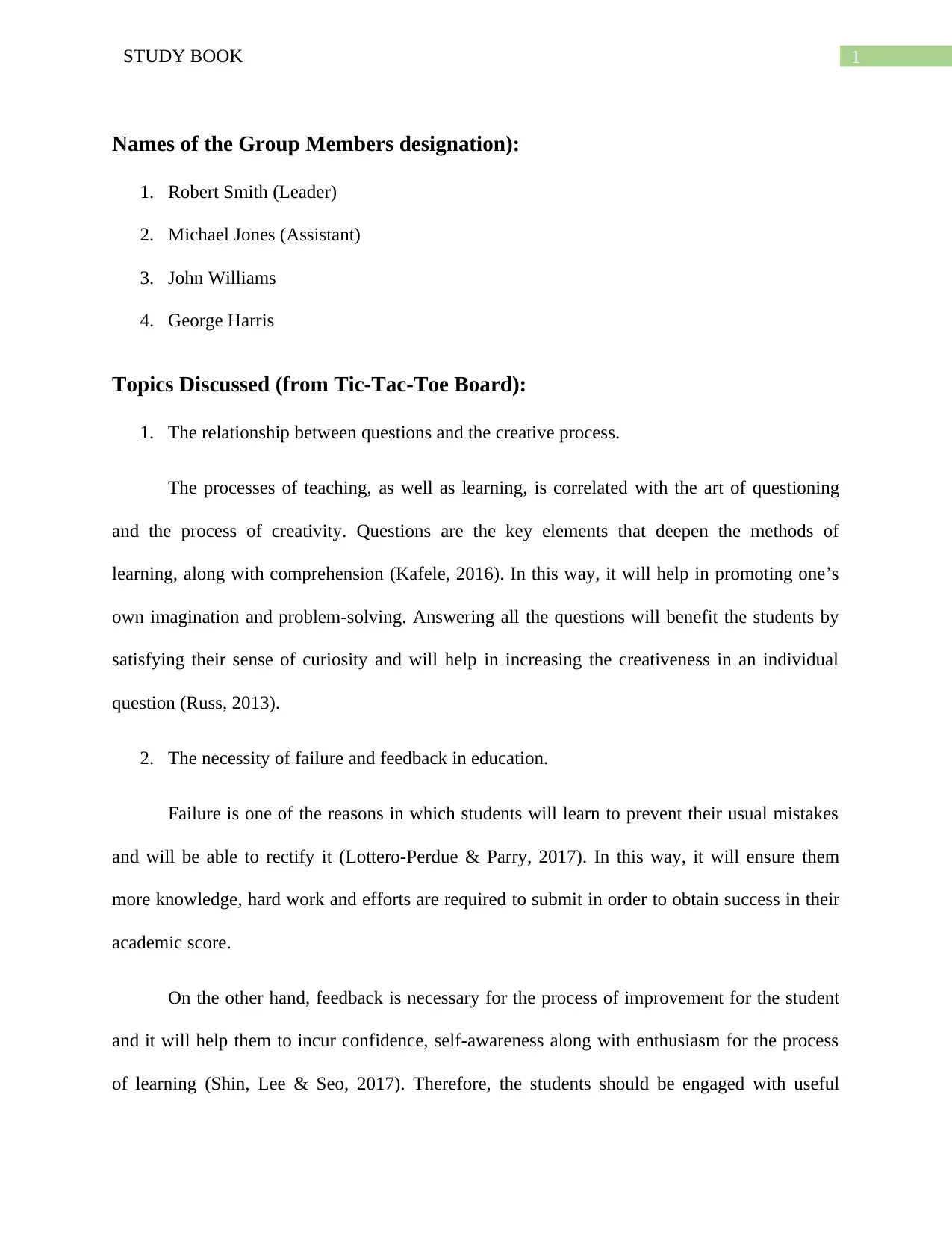
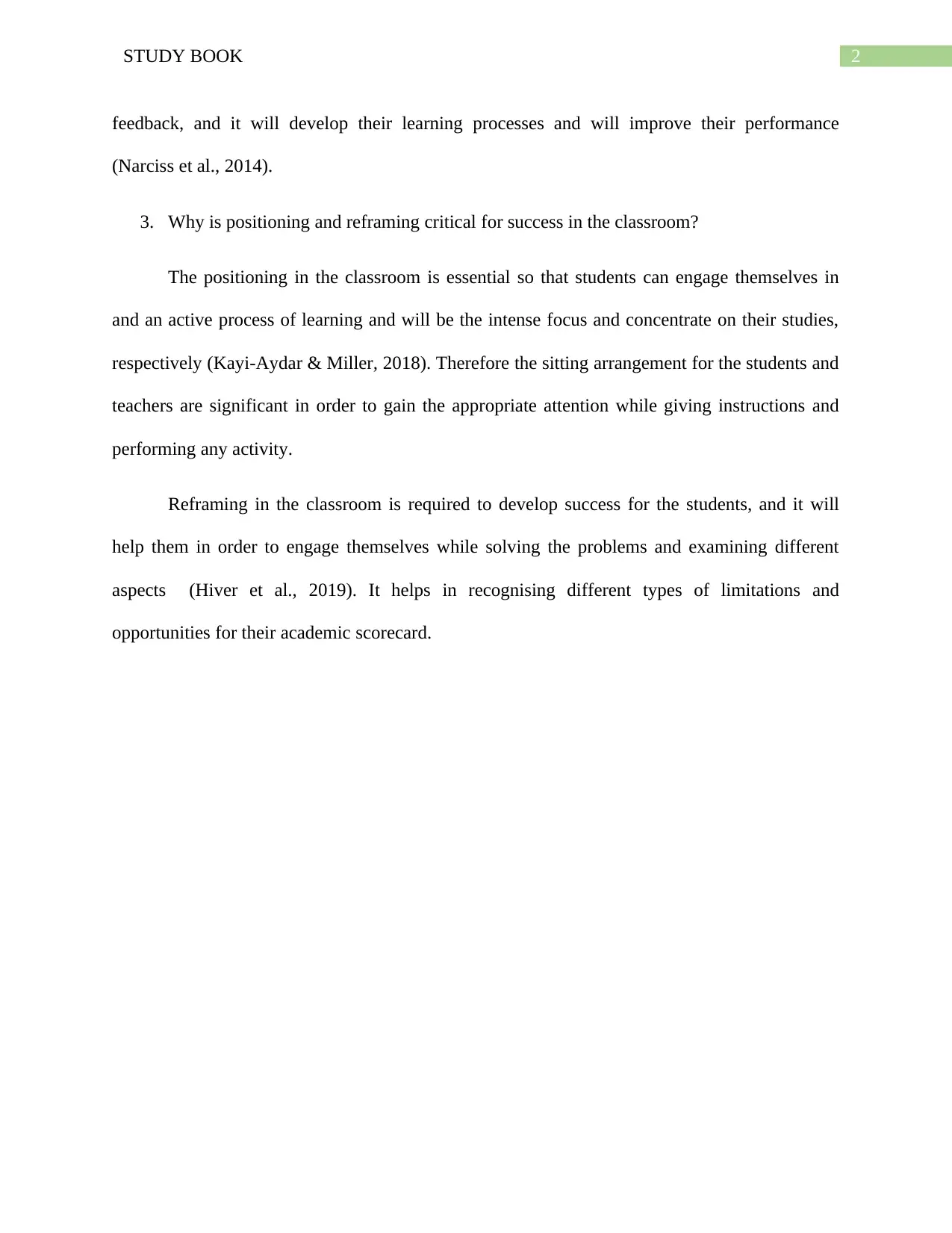
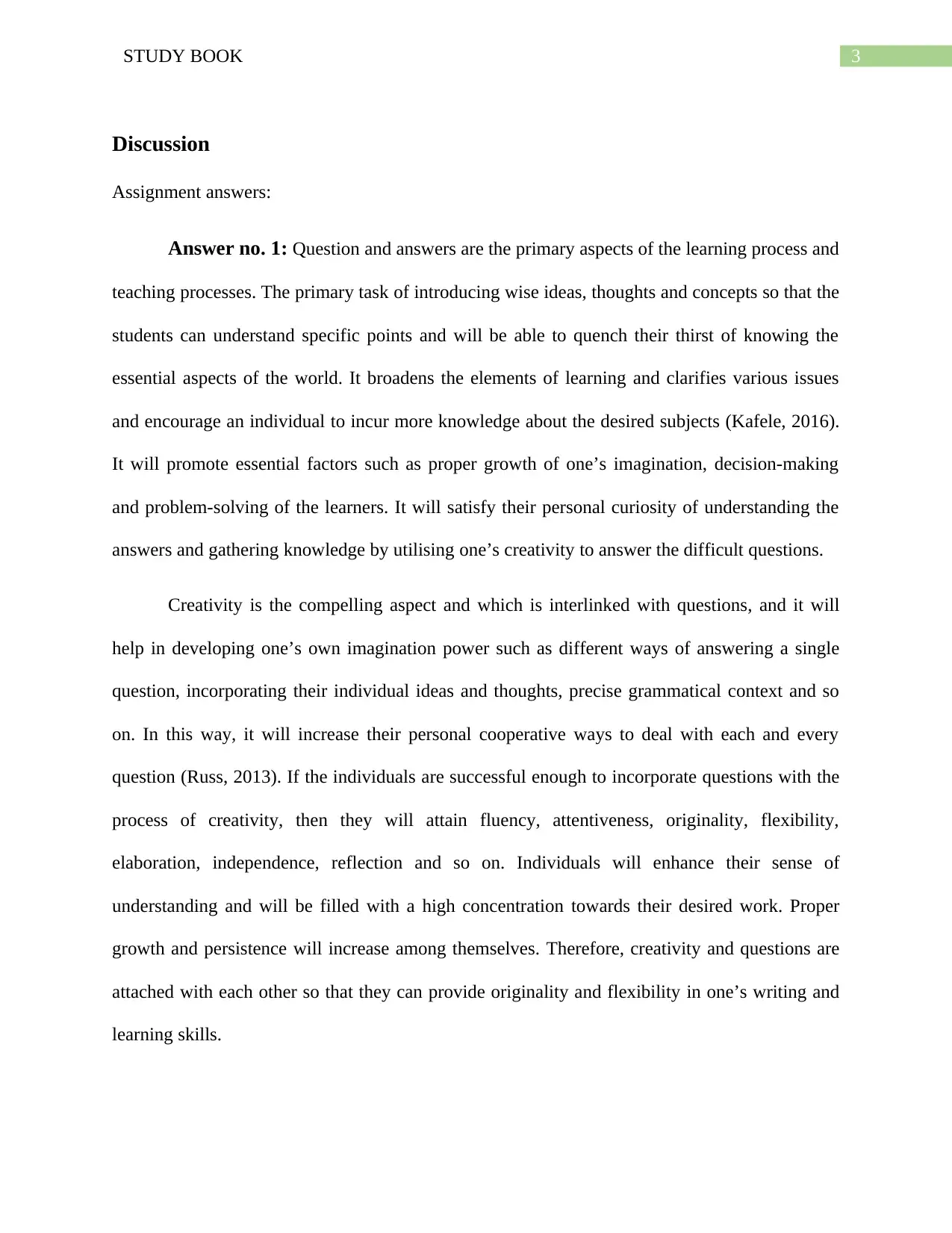
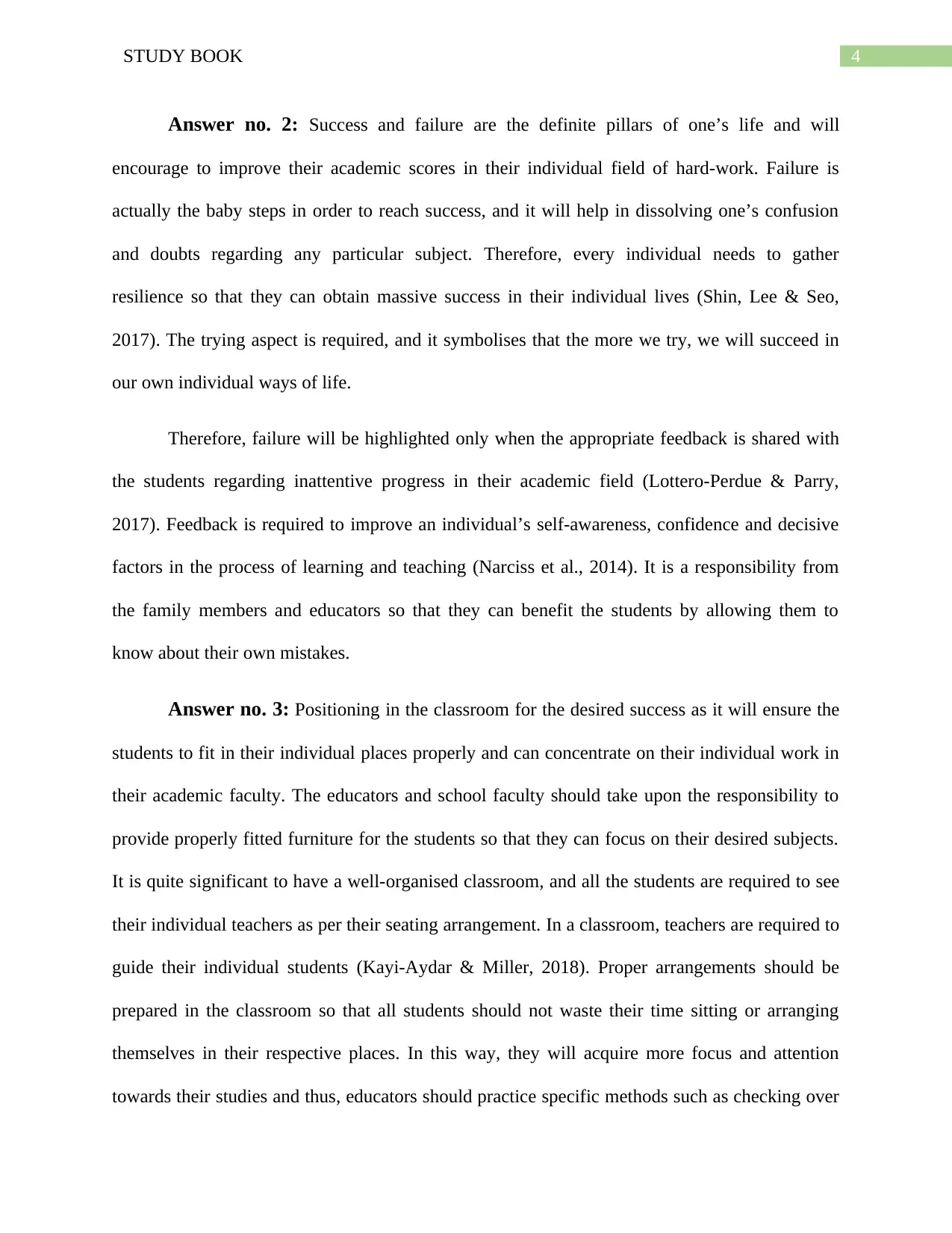
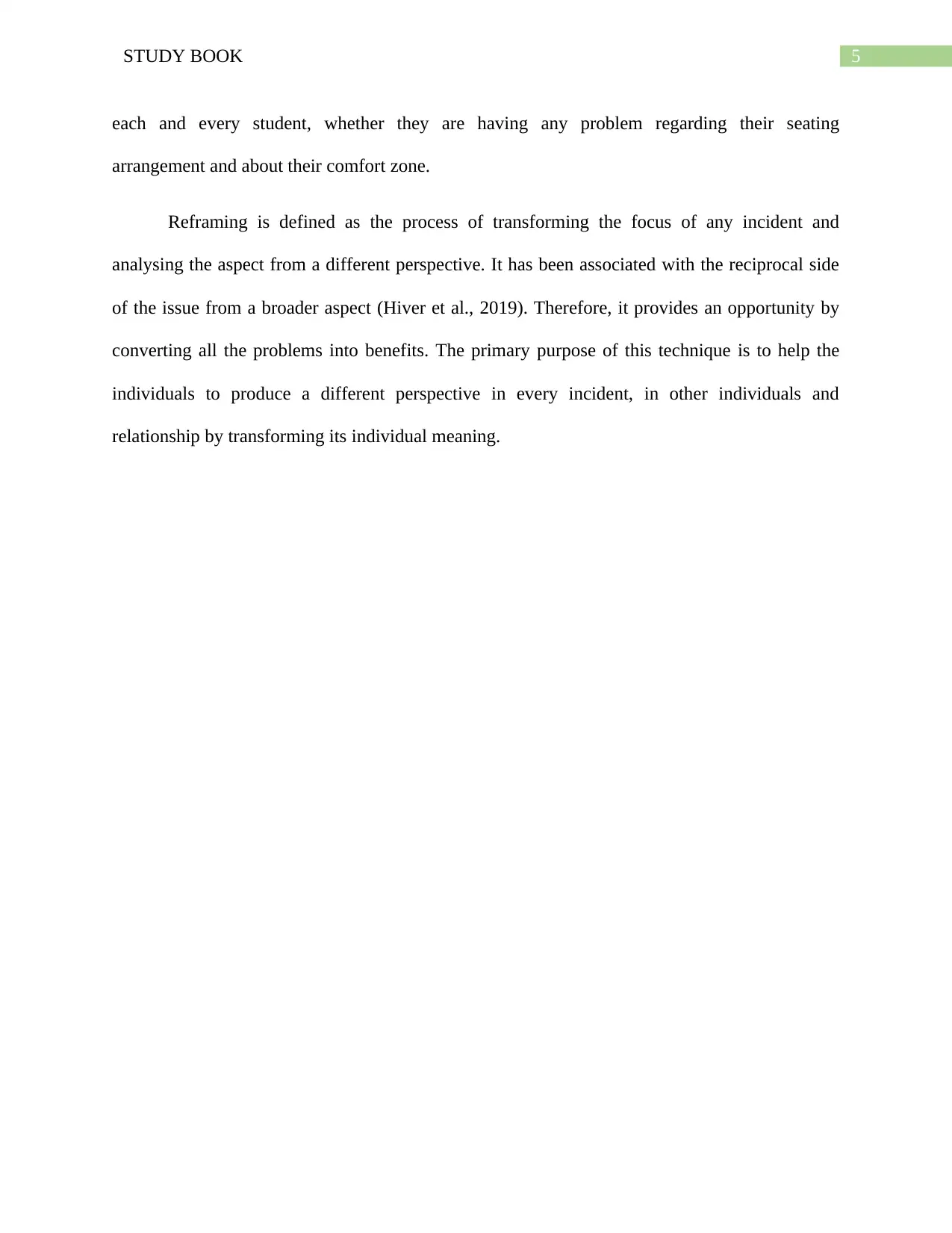
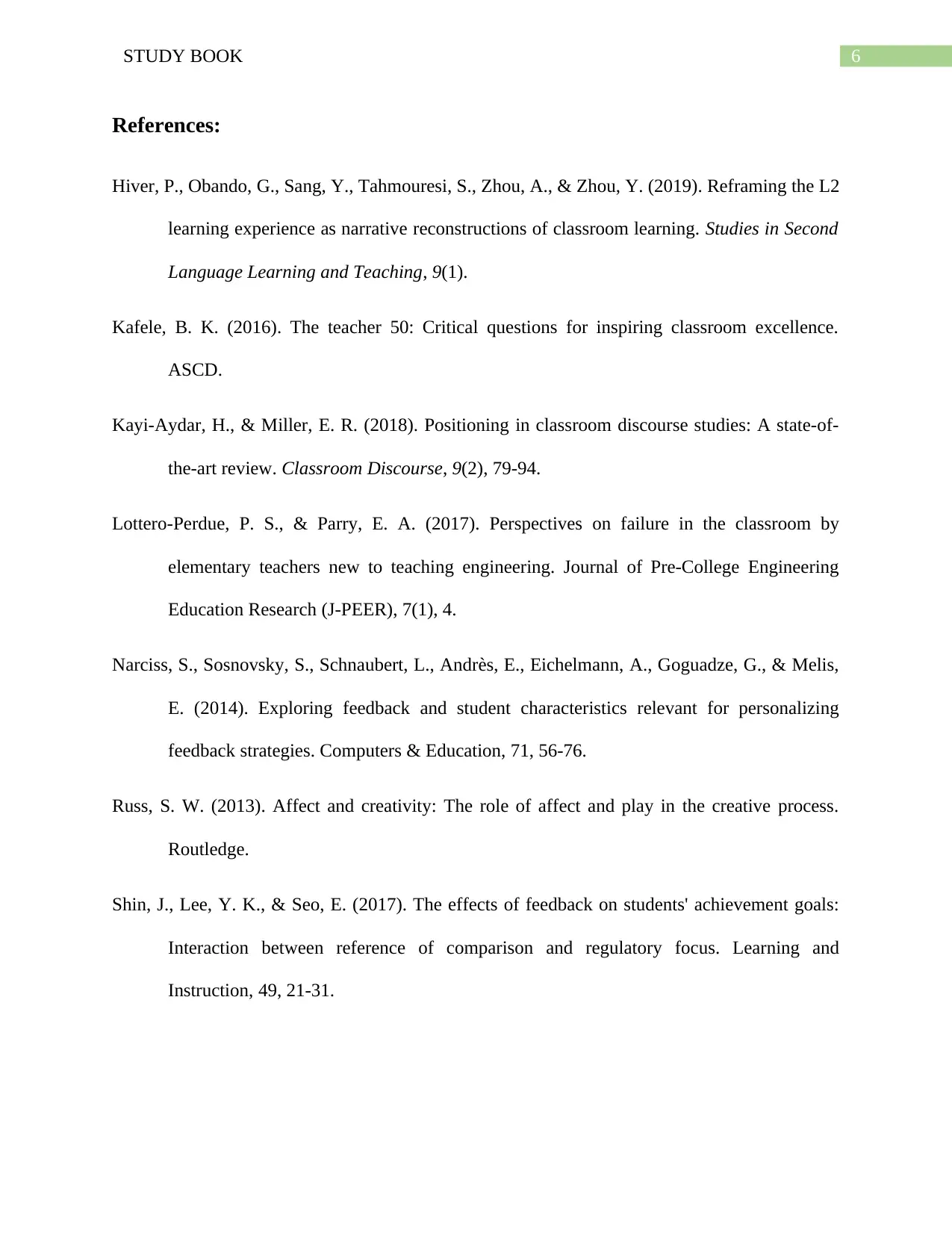






![[object Object]](/_next/static/media/star-bottom.7253800d.svg)